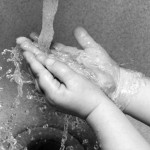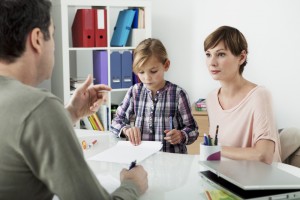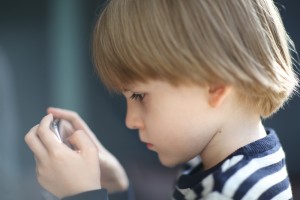
Early childhood-onset obsessive-compulsive disorder (OCD) has disruptive consequences in terms of social, family and academic functioning and a negative impact on the achievement of normal developmental milestones (see for instance Piacentini et al., 2005).
While a number of treatments, such as cognitive behavioural therapy (CBT), selective serotonin reuptake inhibitors (SSRIs) and their combination, have been established as efficacious for older children and adolescents with OCD, little is known about their effects on younger children.
In a recent study in JAMA Psychiatry, Freeman and collaborators set to address this problem by evaluating the efficiency of a developmentally sensitive, family-based CBT protocol, previously adapted with promising results for children between 5 and 8 years of age.
Methods
The POTS Jr was a multisite, parallel-group randomised controlled trial of:
- Family-based cognitive behaviour therapy (FB-CBT) versus
- Family-based relaxation treatment (FB-RT)
It involved three sites in academic medical centers (Brown University, University of Pennsylvania and Duke University). It included children with ages ranging from 5 to 8, a primary diagnosis of OCD according to the DSM-IV-TR, clinical relevant symptoms as defined by a score of 16 or higher on the Children’s Yale-Brown Obsessive Compulsive Scale (CY-BOCS). Symptoms had to be stable for 3 months or longer and children had to be outpatients. Children with pervasive developmental disorders, as were those diagnosed with pediatric neuropsychiatric disorders associated with strep infection (PANDAS) or with acute suicidality, were excluded. Also excluded were children who were undergoing concurrent psychotherapy, had concomitant medications that were not stable for at least 8 months and had been enrolled for more than 10 sessions in prior trials of CBT for OCD.
127 participants were included and randomised into the two treatment groups. For both treatment conditions, 12 sessions were delivered over the course of 14 weeks.

The study compared family-based CBT with family-based relaxation treatment.
The FB-CBT program was adapted to fit this younger age, by resorting to modified psychoeducation, increasing focus on parent-based skills and simplifying CBT skills. It is important to note it included an exposure and response prevention component (EX/RP). FB-RT focused on implementing relaxation techniques with the purpose of lowering the child’s anxiety.
The primary outcome measure was dichotomous and consisted in responder status, with responders defined as having a score of 1 (very much improved) or 2 (much improved) on the Clinical Global Impression-Improvement (CGI-I) scale, rated by an independent evaluator, blind to treatment condition. Continuous outcomes included obsessive-compulsive symptoms, assessed by an independent rater with the CY-BOCS, functioning, measured with the parent version of the Children’s Obsessive Compulsive Disorder Impact Scale-Revised (COIS-R), and quality of life, measured with parent-rated Pediatric Quality of Life Enjoyment and Satisfaction Questionnaire (PQ-LES-Q).
Analysis were conducted in line with the intent-to-treat principle (meaning all randomised participants were included in the analysis), using multiple imputation to replace missing values. To aid the clinical interpretation of the results, the authors also calculated the numbers needed to treat (NNT) for the contrast between FB-CBT and FB-RT. The NNT indicate the number of patients that have to be treated to generate one additional positive outcome.
Results
- Drop-out data revealed that patients in the control group were more likely to stop treatment and receive out of protocol treatment
- Site, sex, baseline age (in months), baseline CGI-Severity scores, medication status and tic disorders were used as covariates in all analyses
- At post-test (week 14), the percentage of children that were rated as responders (1 or 2 on the CGI-I scale) were:
- 72% for FB-CBT
- 41% for FB-RT
- The NNT for an addition responder at week 14 for the contrast between FB-CBT versus FB-RT was 3.2 (95% CI of 2.2 to 5.8)
- FB-CBT was also superior to FB-RT for obsessive compulsive symptoms (CY-BOCS) and functioning (COIS-R), with between groups treatment effects sizes of 0.84, and respectively 0.42. These effect sizes are generally identified as representing large and, respectively, medium standardized effects
- There were no significant differences between the two treatment conditions on quality of life

Comparing family-based CBT to family-based relaxation therapy, the RCT found an NNT of 3.2 for an additional responder at week 14.
Conclusions
Synthesizing their results, the authors state:
Our developmentally sensitive FB-CBT program that included EX/RP was found more efficacious in reducing OCD symptoms and functional impairment in young children (5-8 years of age) than a similarly structured relaxation program.
- The authors also emphasize that the magnitude of the difference in response rates is particularly notable, given the use of an active control group, equivalent in the amount of therapist contact time, and controlling for the effects of treatment expectancy, acceptability, credibility and repeated assessment.
- Regarding the lack of a difference between the two treatments on quality of life the authors speculate this may be due to the fact that the assessment of this construct in smaller children may require different questions and content, given that the scale used to assess quality of life, while validated for this age range, was not exclusively designed for smaller children.
The authors conclude that:
The clinical implications of our results highlight the use of this FB-CBT model as the first-line choice for young children with OCD.

This trial contains impressive results for Family-based CBT for early childhood OCD, but so far only for a very selected sample of young people.
Limitations
- The sample is very limited in regards to ethnic, racial and social-economic diversity, with around 90% of participants being White, non-Latino or Hispanic and with an average annual income range of $70-80k. One could justly wonder whether the results would apply at all to poorer families from ethnic minorities.
- Along the same line, information about the parents’ level of education is missing and could be very relevant, given their active involvement in treatment and the type of treatment used.
- The sites where treatment was delivered, as well as the clinicians involved, had a high level of expertise, which would probably be difficult to find in typical clinical settings. Again, this represents a serious threat for the generalizability of the results.
- While the FB-RT control group is certainly superior to a waitlist, I have doubts whether it can really be considered an active control group. The authors do not talk about blinding of participants, but I doubt it was possible given the particularities of the sample (upper middle class, White and, most likely, educated). The authors do not report comparisons for treatment expectancy and credibility, which would have been important in clarifying how participants saw the control group.

The extremely limited sample in this trial means that great caution should be shown in applying these findings to all young children.
Links
Freeman J, Sapyta J, Garcia A, Compton S, Khanna M, Flessner C, FitzGerald D, Mauro C, Dingfelder R, Benito K, Harrison J, Curry J, Foa E, March J, Moore P, Franklin M. (2014) Family-based treatment of early childhood obsessive-compulsive disorder: the Pediatric Obsessive-Compulsive Disorder Treatment Study for Young Children (POTS Jr) a randomized clinical trial. JAMA Psychiatry 71, 689–698. [PubMed abstract]
Piacentini, J., Bergman, R.L., Keller, M., McCracken, J., 2003. Functional impairment in children and adolescents with obsessive-compulsive disorder. J Child Adolesc Psychopharmacol 13 Suppl 1, S61–69. [PubMed abstract]


Family-based CBT for early childhood OCD: efficient for white, non-minority, upper middle-class children http://t.co/6ucKWSoigZ
Family-based CBT for early childhood OCD: efficient for white, non-minority, upper middle-class children: Ioan… http://t.co/61EXCIBbDf
Family-based CBT for childhood OCD: efficient for white, non-minority, upper middle-class children http://t.co/DdQuQ8rby1 via @sharethis
Today @Zia_Julia on a recent @JAMAPsych RCT of family-based CBT for early childhood OCD http://t.co/7UfR47NC18 #AcronymAlert
@Mental_Elf @Zia_Julia @JAMAPsych Live the hashtag! :)
RCT finds family-based CBT is effective for childhood OCD in white, non-minority, upper middle-class children http://t.co/7UfR47NC18
@Mental_Elf wonder if my friend whose child is in that age group with ocd would find it helpful…
Family-based CBT shows promise for childhood OCD, but limited sample makes generalising findings difficult http://t.co/7UfR47NC18
Family-based CBT for childhood OCD: RCT sample very limited in terms of ethnic, racial & social-economic diversity http://t.co/7UfR47NC18
Mental Elf: Family-based CBT for early childhood OCD: efficient for white, non-minority, upper middle-class children http://t.co/zItbwIZXq4
A well-conducted #JAMAPsych study, but aren’t we just looking out for cures for the White and the rich? http://t.co/NwVWmri13A
RT @Mental_Elf: Read our blog on the Pediatric Obsessive-Compulsive Disorder Treatment Study for Young Children by @Zia_Julia http://t.co/7…
Don’t miss: Family-based CBT for early childhood OCD http://t.co/7UfR47NC18 #EBP
Great, but only for a few: Family-based CBT for early childhood OCD http://t.co/efmw9ih2yF #EBP”
http://t.co/GWPDngpbSh